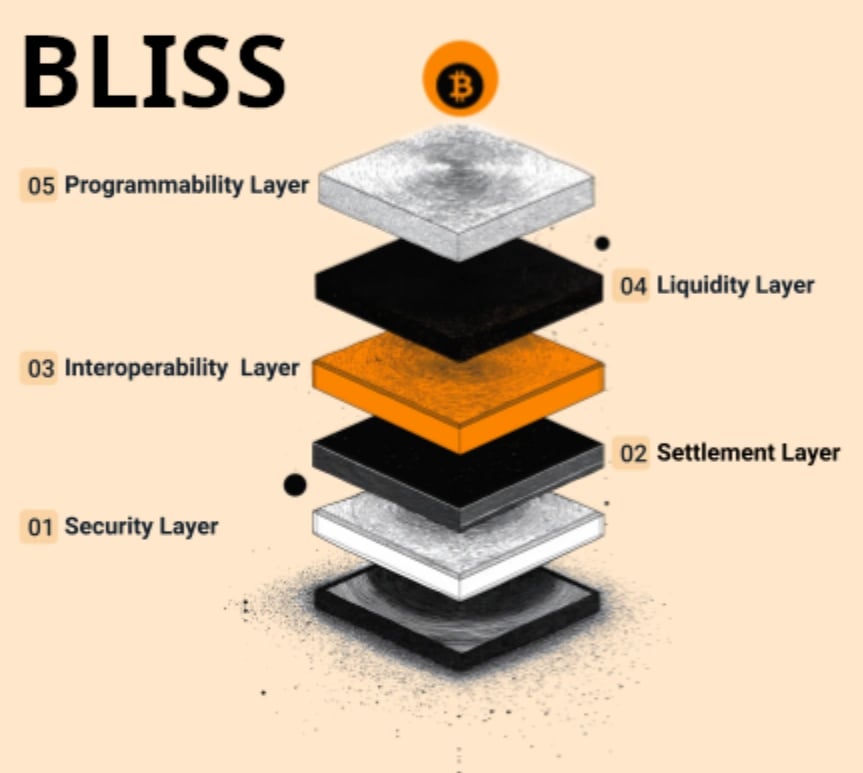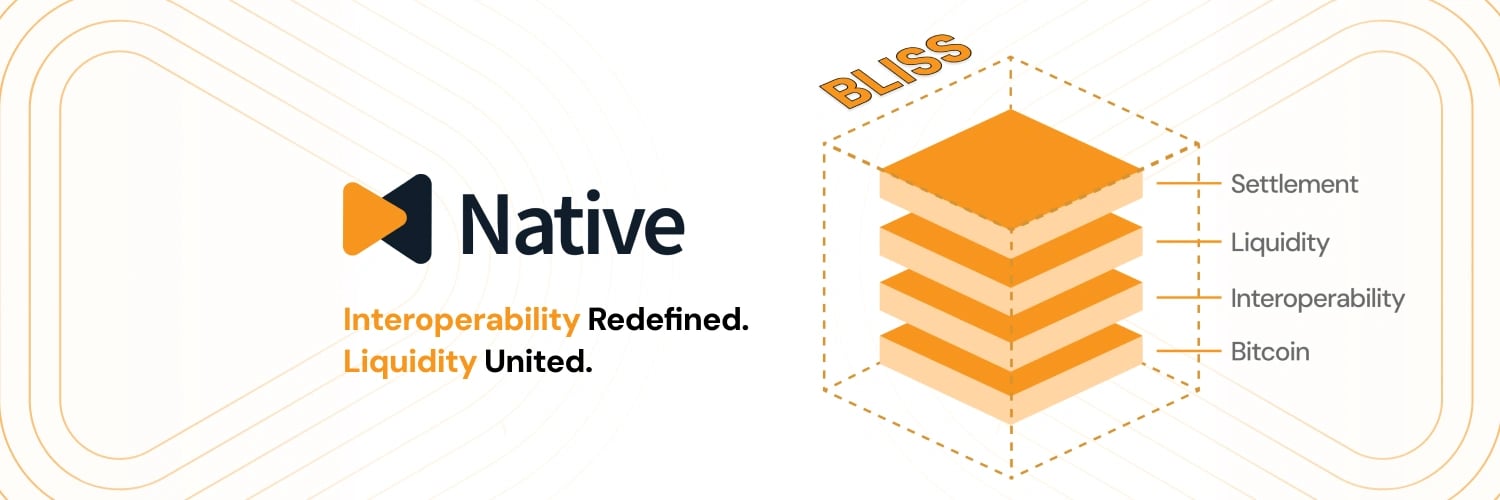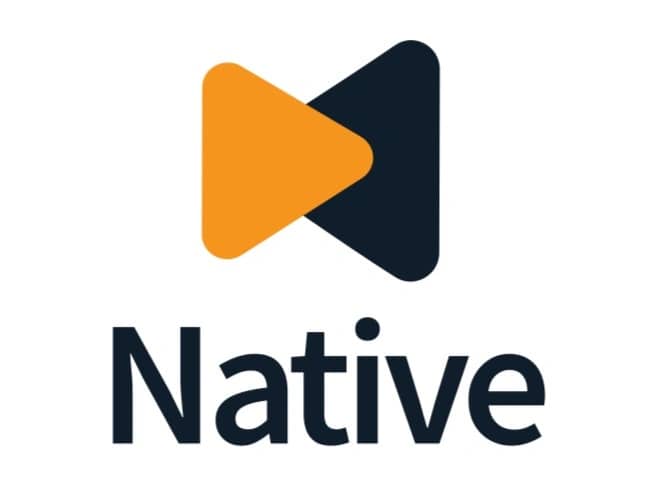위키 구독하기
Share wiki
Bookmark
Native Network
0%
Native Network
Native Network는 제로 트러스트 아키텍처를 기반으로 구축된 비트코인 애플리케이션 레이어로, 비트코인 생태계 내에서 보안을 강화하고 확장 가능한 애플리케이션을 지원하는 것을 목표로 합니다. [1] [2]
개요
Robert Zaremba와 Siva Sagiraju가 설립한 Native Network는 제로 트러스트 아키텍처를 통해 보안, 확장성 및 프로그래밍 가능성을 향상시키는 것을 목표로 하는 비트코인 애플리케이션 레이어입니다. 브리징 메커니즘을 피하면서 스테이킹 및 거버넌스에 네이티브 비트코인을 활용합니다. dWallet Network와 같은 기술을 통합하여 보안 운영을 보장하고 CosmWasm부터 시작하여 프로그래밍 가능한 스마트 계약을 지원하고자 합니다.
이 플랫폼은 비트코인의 원칙에 부합하며 확장 가능한 애플리케이션 개발을 위한 분산되고 안전한 기반을 제공하는 것을 목표로 합니다. [1] [2] [3] [7]
제품
BLISS
BLISS 스택(Bitcoin Liquidity, Interoperability, and Secured Scaling Stack)은 BTC, Runes, Ordinals 및 BRC-20을 블록체인 및 레이어 2 솔루션 전반에서 액세스할 수 있도록 제공하여 비트코인 생태계를 통합하는 것을 목표로 합니다.
여기에는 신뢰 최소화 브리지, 보안을 위한 상태 검증 및 통합 유동성이 포함됩니다. 이 스택은 저렴한 레이어 2 운영을 지원하고, 더 빠른 완결성을 가능하게 하며, 토큰 스테이킹을 통해 네트워크 참여를 장려하도록 설계되었습니다. [4] [5]

BYield
BYield는 비트코인 보유자를 위한 탈중앙화 금융(DeFi)에 대한 액세스를 단순화하여 비트코인 수익 기회를 위한 통합 인터페이스를 제공하는 것을 목표로 합니다. 자산 브리징 또는 래핑 없이 비트코인 레이어 1 프로토콜, 레이어 2, 롤업 및 사이드체인의 옵션을 통합합니다.
신뢰 최소화 아키텍처를 기반으로 구축된 BYield는 맞춤형 수익 추천 및 명확한 목록을 통해 안전하고 투명한 액세스를 제공하여 사용자가 비트코인 지갑에서 직접 수익을 얻을 수 있도록 하는 것을 목표로 합니다. [6]
아키텍처
Native Network는 분산화를 지원하기 위해 Cosmos 스택을 활용하여 스테이킹 및 거버넌스를 위한 사용자 정의 가능한 모듈과 함께 BTC 및 ftBTC 통합을 제공합니다. 이 플랫폼은 제로 트러스트 아키텍처와 즉각적인 트랜잭션 완결성을 제공하는 비잔틴 장애 허용(BFT) 합의 메커니즘을 통해 보안을 보장하는 것을 목표로 합니다. 아키텍처는 검증자와 사용자를 분리하여 위임자가 노드 운영자를 선택할 수 있도록 합니다.
주요 구성 요소에는 분산된 방식으로 비트코인 자산을 관리하는 dWallet, 높은 처리량과 트랜잭션 완결성을 보장하는 CometBFT, 유연한 블록체인 애플리케이션 구축을 위한 Cosmos SDK가 포함됩니다. 향후 계획에는 스마트 계약 보안을 강화하기 위해 MoveVM을 통합하는 것이 포함됩니다.
이 네트워크는 트랜잭션 무결성을 지원하기 위해 지속적인 검증 및 데이터 가용성(DA)을 통해 보안을 유지하고 커뮤니티 중심의 거버넌스를 장려하면서 확장성 문제를 해결하는 것을 목표로 합니다. [1]

사용 사례
Native Network는 개발자가 다양한 분야에서 안전하고 효율적인 애플리케이션을 만들 수 있는 분산된 인프라를 제공하는 것을 목표로 합니다. 주요 사용 사례는 다음과 같습니다.
- DeFi: 자산 래핑 또는 브리징 없이 BTC 지원 대출을 가능하게 하는 플랫폼.
- 게임: BTC 또는 ftBTC로 관리되는 게임 내 자산으로 안전한 온체인 트랜잭션 가능.
- 런치 패드: 안전한 환경에서 IDO 및 토큰 발행을 수행하기 위한 플랫폼.
- 계정 이름: 공정한 분배를 보장하기 위한 경매 시스템이 있는 사람이 읽을 수 있는 ".BTC" 주소.
- Ordinals 및 Runes: 비트코인 블록체인에서 분산된 메타데이터 기록 및 NFT 지원.
- 제로 트러스트 프로토콜: 중앙 집중식 기관에 의존하지 않고 지속적인 암호화 검증을 통해 안전한 트랜잭션 보장. [1]
토큰노믹스
Native Token ($NTIV)
NTIV는 Native Network 내의 유틸리티 토큰으로, 트랜잭션 수수료를 관리하고, 프로토콜 기여자에게 보상을 제공하며, 거버넌스 참여를 가능하게 하도록 설계되었습니다. BTC가 프로토콜을 보호하는 동안 일상적인 운영을 용이하게 하는 것을 목표로 합니다.
검증자는 트랜잭션 처리 및 네트워크 보안에 대한 보상으로 NTIV를 얻습니다. 이 토큰은 프로토콜 수수료 및 거버넌스에도 사용되어 보유자가 프로토콜 조정 및 개발과 관련된 제안에 투표할 수 있도록 하여 BTC 스테이커와 NTIV 보유자 모두 의사 결정에 역할을 할 수 있도록 합니다. [1]
파트너십
- Secret Network
- Rooch Network
- BQ Labs
- Agoric
- C4E
- Zulu Network
- Autonomys
- B2 Network
- Nexio
- Satochain
- BiHelix [8]
잘못된 내용이 있나요?
